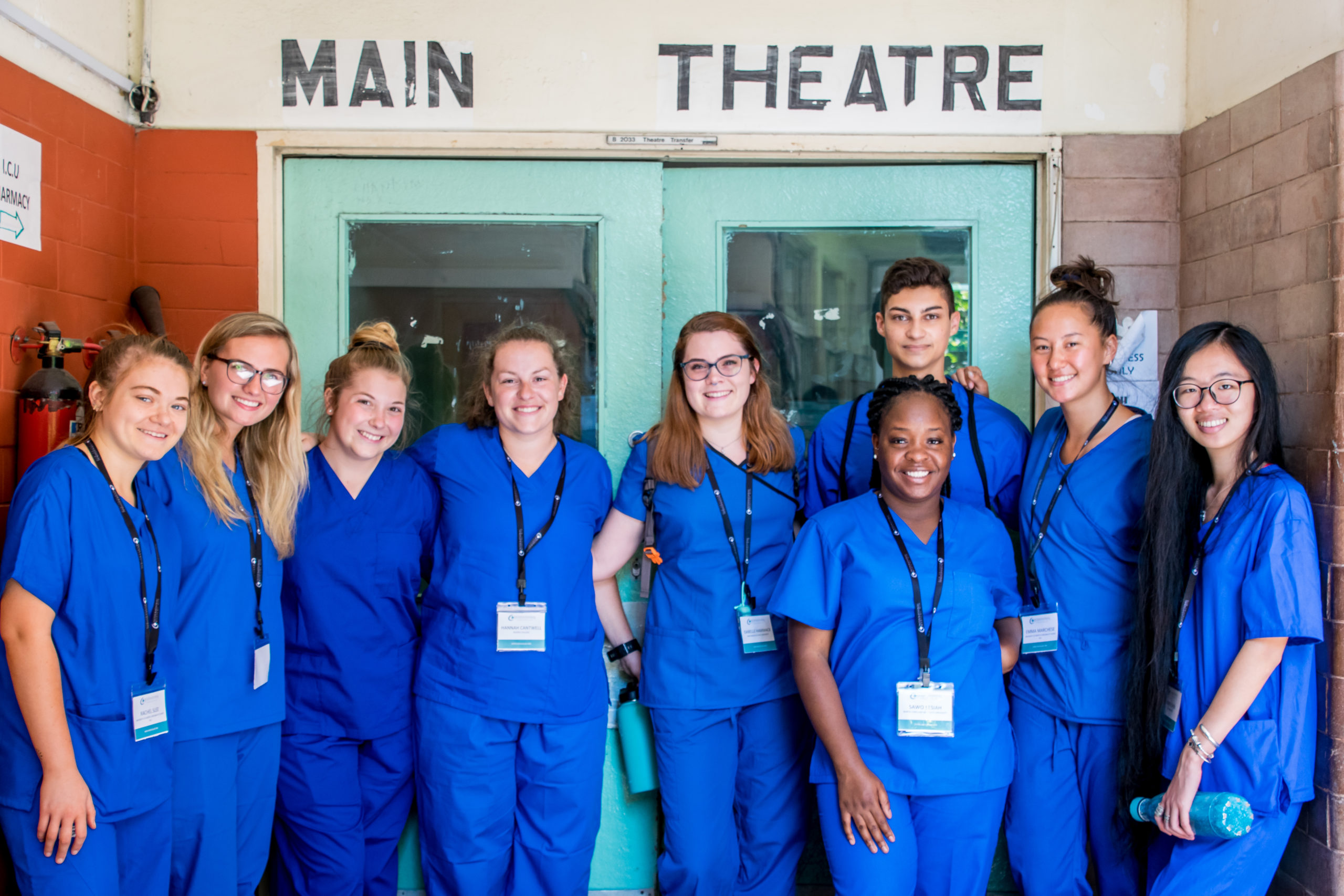Externship vs Internship
The workforce is extremely competitive. College students must make a huge effort to stand out from other applicants. You must take advantage of your time in school. There are certain things that you can do right not to prepare for the workforce.
It starts with building certain skills that are valued by employers. These skills may include teamwork, verbal communication, analytical and problem-solving skills and having a strong work ethic. Employers also look for certain factors during the prescreening process, such as extracurricular activities and integrated learning. At the undergraduate level, you should seek out ways to gain experience.
Internships and externships are ways to learn skills for your chosen career industry. First, it helps to understand the difference between an internship and an externship.
What is Externship vs Internship?
An internship is a position that an intern holds within an organization. It allows the intern to gain work experience or to fulfill a credit requirement. The person who holds this position is usually an undergraduate student or a student in general. On the other hand, an externship starts out as a partnership between educational institutions and employers. The student has an opportunity to observe the day-to-day activities of a professional in their field of interest.
This experience allows you to network with other professionals in the industry. It also helps with determining if you are choosing the right career path. These points listed are some of the factors that distinguish between externship vs internship.
What is the Timeframe for Each Position?
One of the ways to tell the difference is the duration of the position. An internship can last from a month to a year. On the other hand, an externship is a short learning experience. It can last from a day to two weeks. This position is not as formal as an internship.
You will not find them on email mailing lists or on job boards. Some schools even offer externships as part of their academic programs. To obtain this position, it is a matter of networking. You can obtain externships through a variety of sources:
- Family friends
- Parents’ colleagues
- Leaders in your local community
However, there is an exception to the nurse externship. It can last from six to 10 weeks. Externs are put in a position to shadow a professional nurse. For a nurse externship, you must meet certain requirements to qualify.
Potential nursing externs must have:
- Meet a minimum GPA requirement
- Complete a medical and surgical clinical
- Complete an application
- Get multiple letters of recommendations from faculty
Nursing externs can gain confidence in this position. They obtain hands-on experience with complex medical cases and comorbidities. Externs also have the opportunity to learn a day to day shift is like in a health facility. Ultimately, this invaluable experience prepares you for working as a nurse.
Is It Paid or Voluntary?
Internships can be voluntary, paid, can receive course credit or be virtual. College students should take advantage because of the experience. You are not guaranteed employment upon completion of the internship. However, employers use internships to evaluate and train potential job prospects.
On the other hand, students do not receive payment or school credit for externships. However, they will gain valuable experience. The student gets to spend time in the workplace and follow the working professional around. He or she will learn how to do parts of this professional’s job.
Reasons Why Companies Offer Internships and Externships
You are probably wondering why a company would go through the trouble of training an employee who will only work short term. However, companies hire interns for a variety of reasons. These reasons may include:
- Free and affordable labor
- To complete a major project or event
- To attract students to their training programs
- To build relationships with colleges and universities
- To create a talent pipeline
Some employers create these student learning experiences to hire employees. However, not every employer is looking to hire for a long-term position. Hiring externs and interns is good for employers looking to hire entry-level talent. They can evaluate the students’ capabilities without entering into a contract.
Many externs and interns come back to the same position every year until graduation. The employer gains insight into whether the student is a good fit for the company. Working with the same intern or extern saves the company money and time. Companies may ask some of the students to return for full-time employment after graduation. It is an advantage for companies to hire ex-interns and externs. They already understand the job and knows how the company works.
Many employers want to build a relationship with colleges and universities. The recruitment process for externs and interns allows employers to reach out to these organizations. Some employers may reach out directly to faculty members about job offers. Faculty members can help with recruiting students with a specific skill set. Others may post jobs directly on the university’s career center website. Career fairs also allow employers to increase their exposure on college campuses.
Many organizations have special projects that they do not have time to work on. Hiring interns and externs allow companies to complete these projects. Regular employers must work on projects and fulfill their job obligations. It is different for externs and interns. They only have to work exclusively on the projects during their time with the company.
Many companies use this process to create a pool of talent. They take candidates from this pool to fill entry-level positions. Hiring the recruits mean not having to retrain the person, which makes the process easy.
What Do Students Get from This Experience?
It is beneficial for students to gain experience in their field of study. Students can learn a variety of skills from becoming interns and externs. These benefits may include:
- Developing knowledge in a specific field
- Learning how businesses work
- Learning what challenges occur daily
- Creating a network of contacts
- Gaining valuable work experience
- Acquiring university credits
- Getting the national minimum wage for paid work
- Applying academic study to live work environment
This experience allows for building skills that can be used in the real world. Students develop skills in problem-solving, client relationship management and project management. It does not matter if the externship or internship is short. This time is valuable. You will come away with transferable skills. Working as an extern or intern allows for connecting with professionals within the industry. It also looks good on your resume.
What are the Job Duties?
The job duties for externs and interns tend to vary. You have to consider three factors:
- The employer
- The industry
- The position
An internship is different from traditional employment. It has an emphasis on training. On the other hand, a position as an extern is a little different. You may be working closely with an industry professional. An extern will learn parts of the person’s job. For example, if you worked with a nurse, then you may learn how to take blood from a patient.
However, student externs and interns should not get overzealous. You should not expect to get a big client within the first week. Students must remain patient and show a strong work ethic. The main purpose of the experience is for students to serve in a support role. Some employers want you to learn the job from the bottom up. Students may have to carry out boring and tedious tasks. Common tasks may include sorting mail, filing, data entry, and scheduling appointments.
For some interns and externs, the responsibilities may increase. It can lead to becoming a key member of a team. Ultimately, student externs and interns can make significant contributions to a company.
Do You Need Experience?
Students do not necessarily need experience, but employers will look at certain things. These things may include:
- Course credits
- Volunteering opportunities
- Part-time jobs
- Student clubs
- Student portfolios
Some students may pass on volunteer jobs because of not getting paid. It is a chance to develop skills and to network. Students should also pick up part-time jobs. They can learn transferable skills from these positions. Many campuses offer a variety of student groups. These groups may include sororities, fraternities, business clubs, associations, and community groups. Future Business Leaders of America (FBLA) is a popular club on university campuses. This club exposes members to public speaking and competing against other schools.
Volunteering is a good way to gain experience. Many companies and organizations need volunteers to help out in their facilities. It shows the student is a go-getter to employees looking for externs and interns. Students should look for volunteer opportunities in their field of study. Freelancing is an alternative to getting a part-time job. This position may include free and paid work. For example, if you are a computer programmer, then you may write programs for someone. These opportunities can help a student with building a portfolio. This process also allows students to build a variety of skills.
The student must market their service. After obtaining the client, he or she must develop a plan for the work. The student also has to determine how much to charge for the service. Freelancing allows you to learn skills that can be used in the professional world.
It is time to start looking for internships and opportunities as an extern. The right time to apply for internships may depend on the type of internship. College students can start applying to internships as early as their freshman year. If you are interested in a certain intern or extern position, then you should ask about it six months in advance. You want to give the company time to consider candidates and to plan for the position.
What is an externship and internship?
This question is commonly asked among college students. One of the most common differences is the length. An internship can last from a month to a year. On the other hand, externs can work for a company from a day to two weeks.What is an externship and internship? Formality is another difference. Working as an extern is not as formal as an internship.
You will not find this position in an email list or on job boards. An internship is more formal. Students may have to fill out an application or get a recommendation. On the other hand, an employer can offer a student a position as an extern. Another key difference is the requirements of the position. Interns may carry out boring and tedious tasks. However, they can work their way up to more responsibility. Student interns can help with completing special projects or work major events.
A student extern can be a more hands-on experience. He or she gets to follow a professional around. The professional will show the extern what he or she does daily. The extern gets to shadow a professional who is in a specific industry of interest. The differences are clear, but interns and externs are similar in a good way. Students should take advantage of opportunities that allow for networking. They also should take advantage of opportunities to learn new skills. It is an honor to work with professionals in your field of study as well.
Some students may even hold an internship during their entire college career. If you are concerned about your resume, then you should start building experience. Becoming an extern or intern is the first step toward building experience for your resume.
Expanding Your Horizons: Beyond the Classroom
Gaining experience while still in school can be the bridge that connects academic learning to a fulfilling career in healthcare. In today’s competitive job market, students need a strong academic record and real-world experience that demonstrates their skills, passion, and adaptability. One of the most effective ways to build this experience is through internships, externships, and volunteer opportunities. These programs are more than just resume builders—they are transformative experiences that cultivate clinical competence, leadership, and cultural sensitivity.
Hands-On Learning Through Internships and Externships
Internships and externships allow students to immerse themselves in the day-to-day operations of healthcare facilities. By working alongside experienced professionals, students can observe, learn, and gradually take on responsibilities that might otherwise be left solely to seasoned staff. The formal structure of an internship might involve a rigorous application process, detailed projects, and a commitment that spans several months, offering a comprehensive introduction to the workings of a professional environment. On the other hand, externships, which are generally shorter in duration, offer an opportunity to shadow professionals, providing insight into daily tasks without the extended commitment.
This real-world exposure is crucial. It helps students understand how theoretical concepts learned in classrooms are applied in practice, from diagnosing conditions to managing patient care. Through these experiences, students learn how to communicate effectively with both patients and colleagues, work under pressure, and make informed decisions. Moreover, they develop a network of contacts in the industry, which can prove invaluable when seeking full-time employment after graduation.
Building Clinical Competence Through Specialized Internships
Different medical fields offer unique learning opportunities. For example, physical therapy internships are particularly effective in enhancing clinical competence. In the article “5 Ways Physical Therapy Internships Enhance Clinical Competence”, you can learn how these internships not only teach the practical aspects of patient care but also help students refine their technical skills, improve their understanding of anatomy and physiology, and foster a holistic approach to patient rehabilitation. This resource highlights that by working directly with patients, interns can develop a nuanced understanding of movement disorders, pain management, and recovery strategies—all essential skills in physical therapy.
Navigating the World of Mental Health Internships
The field of mental health is equally rewarding and challenging. “Mental Health Internships: What to Expect and Prepare For” is an excellent guide for students considering a career in mental health services. This article outlines the expectations, challenges, and rewards of working in a mental health setting. It provides practical advice on preparing for mental health internships’ unique emotional and intellectual demands.
Students learn about the importance of empathy, confidentiality, professional boundaries, and effective communication methods with patients experiencing crisis or long-term psychological issues. Such internships strengthen clinical skills and build resilience and a deeper understanding of the human condition.
Expanding Your Medical Career Globally
In today’s interconnected world, gaining international experience can set you apart in the job market. “How Overseas Internships Enhance Your Medical Career” explores the myriad benefits of stepping outside your home country to learn and contribute. Overseas internships offer a chance to work in diverse healthcare settings, where you might encounter diseases and treatment approaches that differ from those in your home country.
This exposure fosters a global perspective, improves cultural competence, and broadens your understanding of global health challenges. Moreover, working in a foreign environment can be both professionally and personally enriching, challenging you to adapt and innovate under new circumstances.
The Multifaceted Benefits of International Medical Aid Programs
International Medical Aid provides medical students with opportunities beyond traditional clinical roles. By participating in programs offered by International Medical Aid, students are exposed to various healthcare practices and environments. This exposure is critical in developing a well-rounded patient care and management approach.
Whether you work in rural clinics or urban hospitals abroad, the experience of dealing with diverse patient populations and various medical conditions is invaluable. It equips you with the ability to adapt to different healthcare systems, understand the socio-economic factors that affect health outcomes, and develop innovative solutions tailored to each community’s needs.
Taking the Initiative: Practical Steps to Get Started
For students eager to start their journey, the first step is proactive research and planning. Here are some actionable tips:
- Explore Opportunities Early: Whether you’re interested in internships, externships, or volunteer work, start researching available opportunities as early as your freshman year. Early exposure can provide a head start in building your resume and gaining confidence in your skills.
- Network Actively: Engage with professional groups, both on and off campus. Organizations such as sororities, fraternities, and professional clubs like the Future Business Leaders of America (FBLA) offer a platform to meet industry professionals and learn about new opportunities.
- Leverage Online Resources: Use reputable websites and articles to guide your search. The aforementioned articles provide targeted insights into specialized fields within healthcare, making it easier for you to decide which path aligns best with your career goals.
- Seek Guidance and Mentorship: Don’t hesitate to reach out to mentors who can offer advice and share their experiences. Networking with alumni or professionals in your desired field can provide valuable guidance on navigating your early career steps.
Empowering Your Future Through Global Experiences
The benefits of taking the initiative and engaging in internships, externships, or volunteer positions extend far beyond acquiring practical skills. These experiences empower you to develop a strong professional identity, enhance your communication abilities, and foster a commitment to lifelong learning. As you build your experience, remember that every role—no matter how small it may seem—is a stepping stone toward becoming a more capable and compassionate healthcare professional.
At International Medical Aid, the focus is on nurturing this potential. International Medical Aid is dedicated to ensuring that every student gains the insights and hands-on experience needed to excel in their career by offering opportunities to work with diverse healthcare professionals and exposing them to various aspects of medical care.
Your Journey Starts Here
If you’re ready to take the next step, start exploring internships, externships, and volunteer opportunities that align with your interests. Whether you’re interested in physical therapy, mental health, or international medical care, resources are available to help guide your journey.
Embrace the opportunity to learn, grow, and ultimately make a meaningful impact in the world of healthcare. Your future as a healthcare professional is bright, and every experience brings you closer to the expert you aspire to become.
Start building your experience today with International Medical Aid. Medical students can gain valuable experience working aboard. They can shadow nurses, doctors, nutritionists, counselors, dentists, and physician assistants. It is a life-changing experience that allows you to help people in need. Become an extern or intern today!





